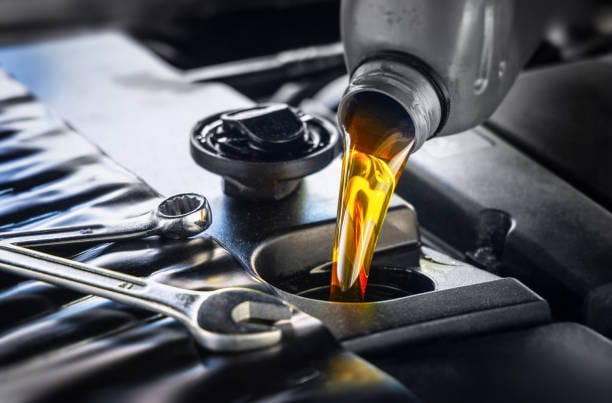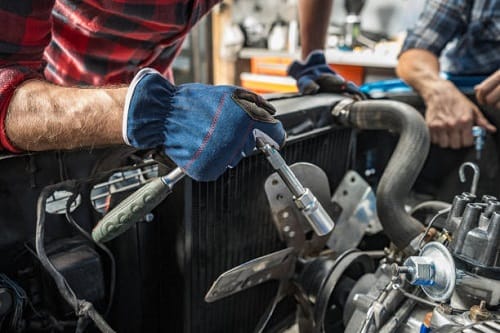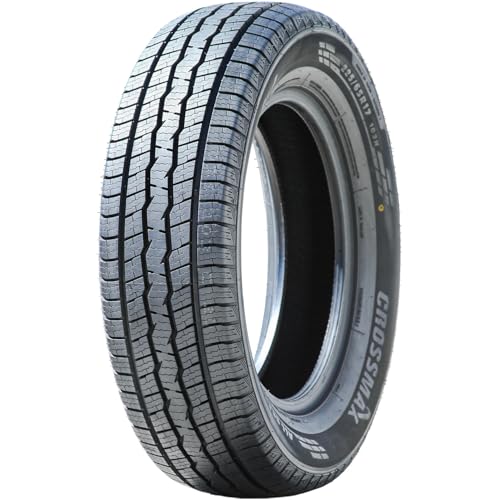Hitting the 50,000 miles mark is a big deal for your car, kind of like a milestone birthday. However, with great milage comes responsibility. As your car ages, it requires more attention to maintain its performance, safety and over health. This then raises the question: What Maintenance does a Car need at 50000 miles?
Your car has likely experienced its fair share of wear and tear, it is subjected to various conditions that can take a toll on its components. oil changes, tire rotations, and brake pad replacements are just a few essential maintenance tasks that can help prevent costly repairs potential headaches and ensure your car remains in top condition.
But what other maintenance does your car need at 50000 miles? read on as i’ll breakdown all the essential maintenance your car need at this milestone. By the end of this article, you’ll be equipped with the knowledge to keep your car running like a new car. Let’s get started!
9 Maintenance your Car Need at 50000 Miles
At 50000 miles, your car needs essential maintenance to keep it running smoothly. Here are 9 key maintenance your car needs at 50000 miles:
- Fuels System Fluids and filters
- Tires
- Brakes
- Suspension and Steering
- Belt and Hoses
- Spark Plug and Ignition System Maintenance
- Battery Health
- Exhaust System
- Cabin Confort and safety
READ ALSO: 13 Car Maintenance Secrets Mechanics Won’t Tell You
1. Fuel System, Fluids and Filters

At 50,000 miles, your car’s fuel system, fluids, and filters have seen a lot of action. Some need checking, inspection, and cleaning, while others need replacing. Below are what needs to be maintained here:
- Engine Oil and Filter: By now, you’ve probably changed your oil multiple times, but it’s still worth checking. Stick to your manufacturer’s recommended oil type (synthetic or conventional), and swap out the filter to keep everything running smoothly.Example: Think of oil as your car’s bloodstream. Dirty oil is like eating junk food every day—it clogs things up and makes everything work harder.
- Transmission Fluid: If your car has an automatic transmission, this is important. Transmission fluid breaks down over time, especially if you drive in heavy traffic or tow things. A fluid flush can help your gears shift seamlessly.
- Coolant (Antifreeze): Your coolant doesn’t just keep the engine from overheating; it also prevents freezing in colder months. Check for leaks, and top it off if needed.
- Brake Fluid: Over time, brake fluid absorbs moisture, which can reduce braking performance. If it’s been over 2–3 years since it was replaced, now’s the time.
- Fuel Filter: A clogged fuel filter can cause rough idling or trouble starting. Replacing it ensures your engine gets a clean supply of fuel.
2. Tires
As your car hits the 50000 mile mark, it’s important to give your tires some extra attention. Your tires have probably rolled through rain, potholes, and maybe even a few nails (oops). You should take a closer look at your tires and check for signs of wear, such as uneven tread wear, cracks in the side walls or bulges.
It is recommended that you rotate the tires to ensure even wear and extend their lifespan. This involves moving the front tires to the rear and vice versa, and sometimes even swapping the left and right sides. In addition, chek the tire pressure and adjust it according to the manufacturer’s recommendations.
Depending on your driving habits, or If your tires are showing significant signs of wear or are approaching the end of their lifespan, then your tires is be due for replacement and it’s best to replace them for your safety. When choosing a new tire, make sure to select ones that match the manufacturer’s recommendations and suit your driving habits and climate.
Properly inflated tires can improve fuel efficiency, handling and safety.
3. Brakes
You brakes are one of the most critical safety features in your car, and negleting them can have disastrous consequences. At this milage, your brake pads may be worn down, and your rotors might be showing signs of wear especially if you drive in stop-and-go traffic.
It is important to inspect your brakes to ensure they’re functioning properly. A thorough brake inspection should include checking the brake pads, rotors, calipers, and brake fluid. Pay attention to unusual sounds like squealing or grinding, they’re warning signs indicating cry for help.
If your brake pads are worn down to 1/8 of an inch or less, it’s time to replace them. Similarly, if your rotors are excessively worn or warped, they may need to be resurfaced or replaced. Dont forget to check your brake fluid level and top it off as needed. Also, make sure your emergency brake (or parking brake) isn’t sticking or losing its grip.
SEE ALSO: Car Waxing 101: Protecting Your Vehicle’s Shine
4. Suspension and Steering
The suspension system keeps your ride smooth, and the steering system keeps you in control. Over time, wear and tear can cause components to deteriorate, which leads to bumpy ride, uneven tire wear, and even safety issues.
Have your mechanic inspect your suspension and stering components. These components deserve attention:
- Shock Absorbers and Struts: If you notice a bumpy ride or your car “dives” forward when braking, your shocks might need replacement.
- Power Steering Fluid: Low or dirty power steering fluid can make turning feel heavy or jerky.
Look for signs of wear, such as leaks, rust, or excessive play. If any components are damaged, replace them to prevent further damage and ensure optimal performance.
5. Belts and Hoses
Rubber components like belts and hoses degrade over time due to heat, friction and other environmental factors. At 50,000 miles, give them a thorough inspection because their failure can lead to costly repairs, and even engine damage.
Have your mechanic inspect your drive belt (or serpentine belt), timing belt, fuel hoses, brake hoses and radiator hoses to check for signs of cracks, frays or worn-out ribs. If any of the belts are damaged, replace them to prevent further damage and ensure optimal performance.
With this, you’ll be able to avoid unexpected breakdown, reduce risks of engine damage and enjoy a more reliable, stress-free driving experience.
SEE ALSO: How to Remove Swirl Marks from Your Car by Hand: A Step-by-Step Guide
6. Spark Plugs and Ignition System Maintenance
You car spark plugs and ignition system at 50000 miles might just be close to being damaged. Spark plugs plays a major role in igniting your the fuel-air mixture in your engine while the ignition system ensure that the spark plugs fire at the right time. Over time, this things could get dameged which may lead to reduced engine performance, decresed fuel efficiency, and even engine misfires.
For proper maintenance, inspect your spark plugs and check for electrodes, broken insulators, or excessive carbon buildup. Also, check your ignition system including the ignition coil, ignition module, and spark plug wires for signs of damages or corrosion. Simply replace them if found damaged.
Spark plugs and ignition system components are relatively inexpensive to replace, but ignoring them can lead to costly repairs, engine failures and you may even be disappointed when your car doesn’t start as a result of your ignorance; It could be at a time you need it the most, so simply do the needful!
7. Battery Health
The battery is the heartbeat of all the electrical system in a car. Due to age, deep discharging, and heat, you car battery may detriorate and could lead to slow engine crank or even a dead battery. You might want to read this article: Does Charging Your Phone In The Car Drain The Battery
During your 50000 miles maintenance, check your battery’s condition, age, and charge level. inspect it if there’s any form of corrosion on the terminals; if any, clean it off with a wire brush. Also inspect for cracks in the case or low electrolyte level. If your battery is more than three years old or show signs of weakness, consider replacing it with a new one.
With your battery properly maintained, you’ll be able to avoid unexpected breakdowns, jump-starts, and the being stranded. If it’s weak, replace it before it dies at the worst possible moment.
8. Exhaust System
You certianly won’t like it if you car is making a really loud noise right? This is why you must include your exhaust system maintenance during your 50000 miles maintenance. The exhaust system helps reduce your car noise, direct gases away from the cabin and minimize emissions. Over time, it may not be able to perform these function due to deterioration.
Have your mechanic inspect the exhaust system including the the muffler, catalytic converter, exhaust pipes, and manifold. Look for signs of damages like holes, rust or cracks; also check for any leaks, blockages, or a loud exhaust note (unless you added that intentionally). If any conponent is damaged, replace them to ensure optimal performance.
A healthy exhaust system improves fuel efficiency and reduces harmful emissions.
9. Cabin Comfort and Safety

Your car’s cabin is where you spend most of your time, and ensuring it’s comfortable, clean and safe is important for your well-being. Inpect you cabin air filter, replace if necessary, and vacuum the interior to remove dirt, dust, and allergens. If your A/C smells funky or airflow feels weak, a dirty cabin air filter is likely the culprit.
In addition, inpect the car’s safety features like the seatbelts, airbags, and anti-lock braking system. Ensure the headlights, taillights, and brake lights are functioning properly. Streaky wipers? Swap them out. You don’t want to be caught in a downpour with poor visibility.
READ: How Often Should I Change My Car Wiper Blades
Conclusion
There you have nine different types of maintenance your car needs at 50000 miles. This maintenance is important to extent your car’s lifespan, ensure safety and prevent costly repairs down he road.It’s a chance to reset, refresh, and make sure everything’s in tip-top shape for the road ahead.
A well-maintained car feels smoother, performs better, and keeps you safe. So, what next? Schedule that 50000 miles maintenance check, and let a trusted mechanic give your car the once-over. Don’t just shrug and say, “Whatever you think, Doc.” Ask questions, stay informed, and treat your car like the partner it is.
Share your experiences, tips and questions in the comments box below! And dont forget to share this post with firends and family who might be due for a maintenance check. Let’s keep our cars running smoothly and our roads safe!
















2 thoughts on “What Maintenance does a Car need at 50000 miles?”